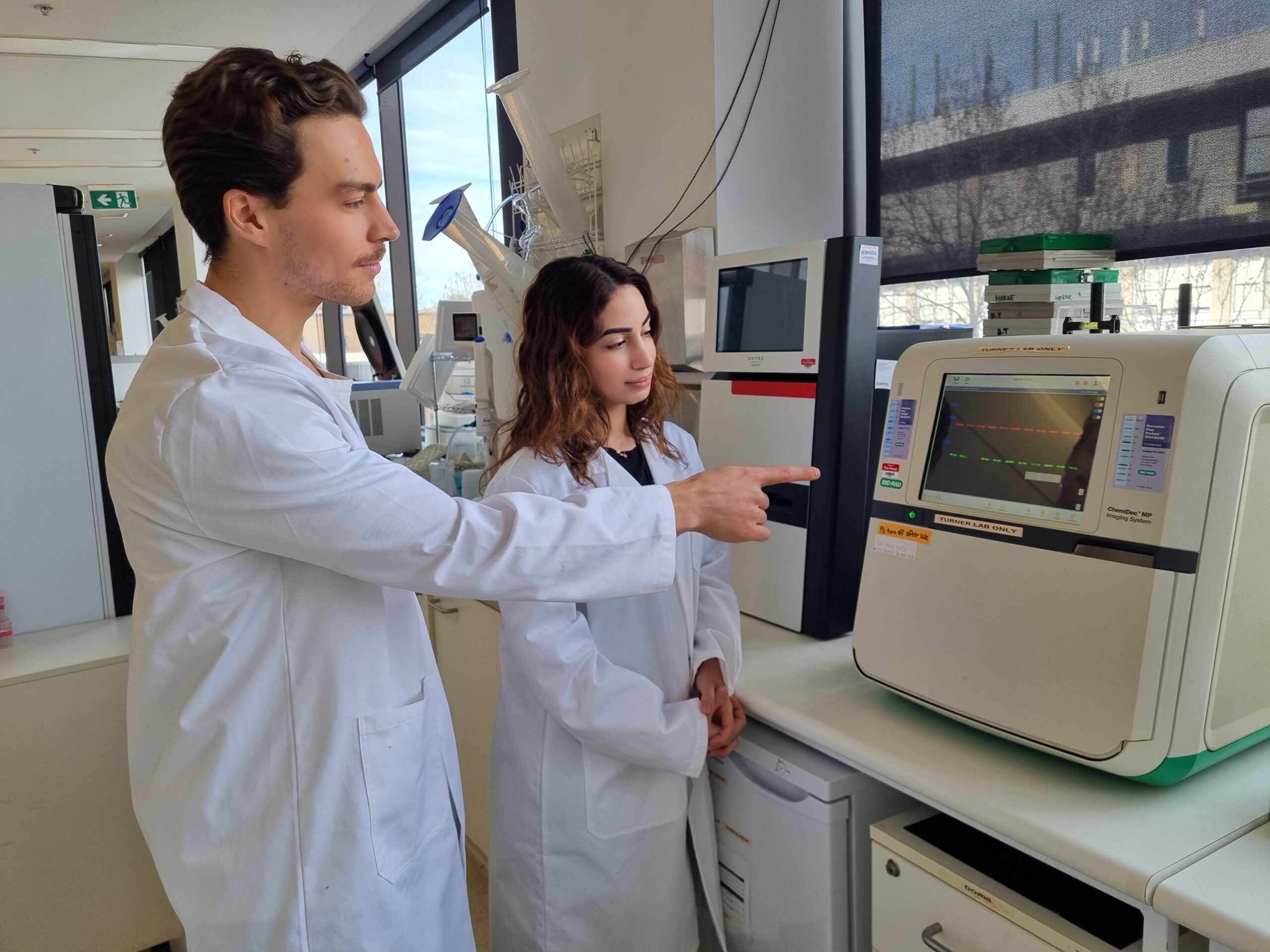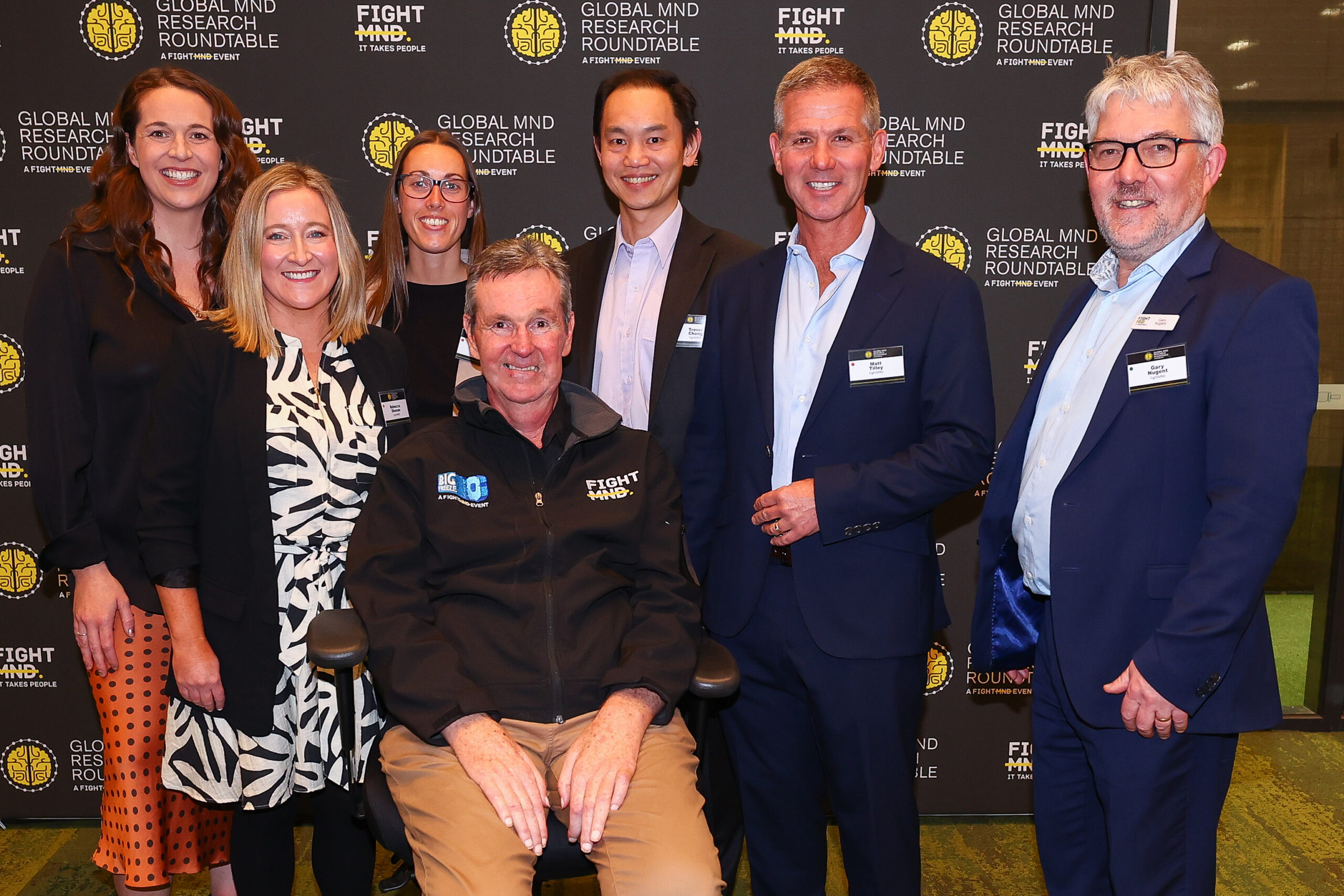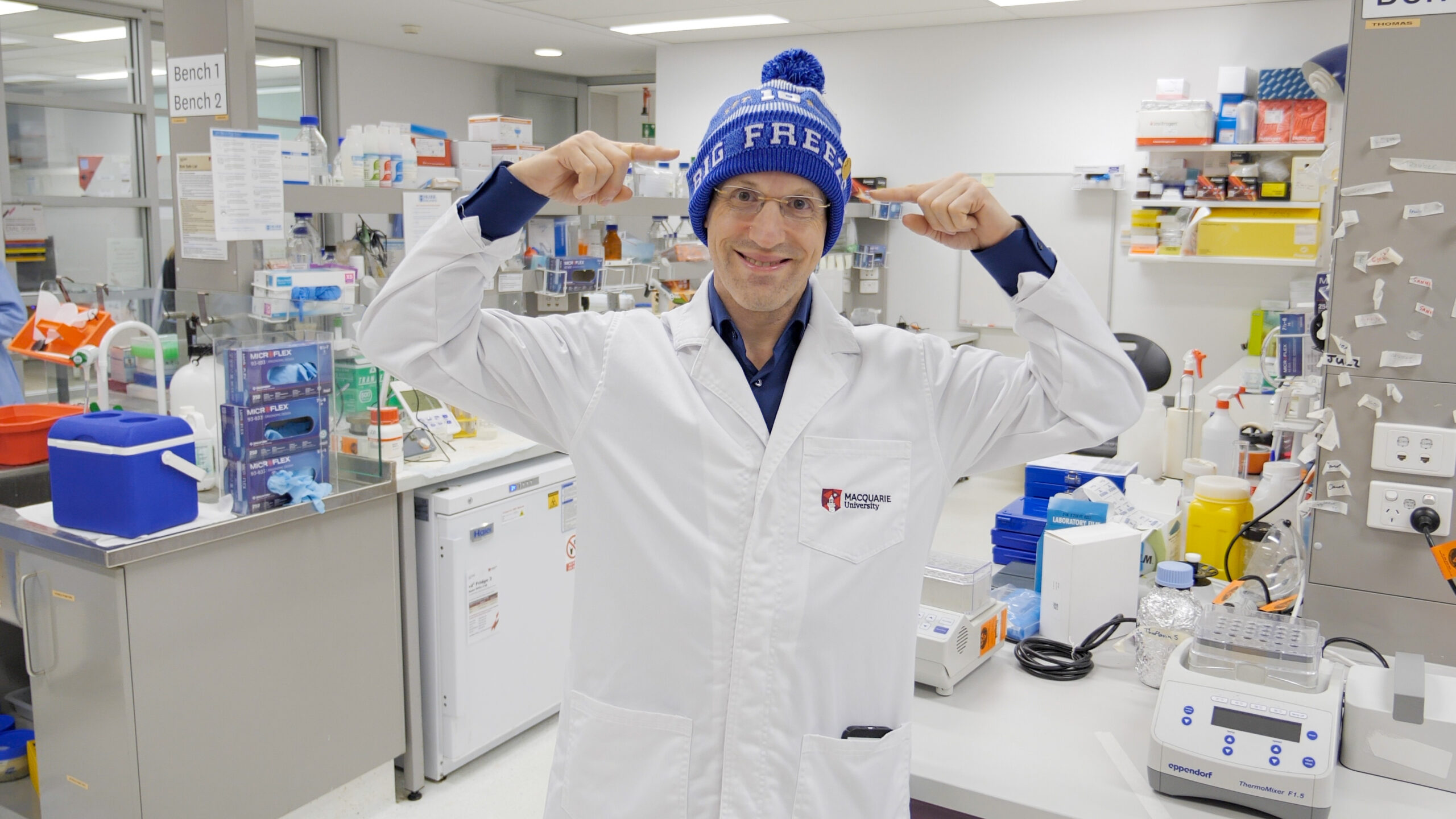At FightMND, our vision is a world without motor neurone disease (MND). The best way to defeat the Beast is to invest in MND research and innovative initiatives.

Understanding FightMND funding
Your donations help FightMND support a range of Cure and Care projects.
Cure projects aim to understand and treat MND. Care grants support initiatives to help the MND community.
We also support activities to help improve research and outcomes for MND. This includes research roundtables and symposiums.
Cure investment
Motor neurone disease was first identified more than 150 years ago. Despite this, it remains a terminal condition with no effective treatment or cure.
Advancements in research in the past 25 years have helped build our understanding of MND. But we still lack the treatments to slow or stop its progression.
To tackle such a relentless disease, progress can be slow. Finding a cure involves rigorous, long-term research. This is where FightMND comes in. We’re funding some of the brightest scientists in Australia and beyond to advance MND research.
Find out more about FightMND’s Cure grants below.
Clinical trials
Clinical trials test new drugs, or those approved for other diseases, in people with MND. Researchers conduct trials in three phases.
- Phase 1: involves safety studies to determine if a drug is safe for people, especially those with MND.
- Phase 2: involves trials testing safety and effectiveness in a small group of MND patients.
- Phase 3: involves trials to assess the safety and effectiveness in a larger group of MND patients.
Drug development projects
Drug development projects aim to test new drugs or therapies. They seek to advance them to the final testing stages before clinical trials for MND patients.
Discovery projects
Discovery projects aim to find unknowns in MND research. They focus on the disease’s causes and progression. Their goal is to improve understanding of MND. This may lead to treatments or a cure.
IMPACT projects
IMproving and ACcelerating Translation (IMPACT) projects aim to overcome challenges in MND drug development and trials. They focus on improving and speeding up translation. They aim to improve drug design, target disease-causing genes and understand disease variability. They also seek to develop diagnostic markers and create better lab models for MND research.
National research infrastructure grant
The national research infrastructure grant addresses the underfunding of research infrastructure in Australia. It supports projects focused on advancing nationalised and sustainable research infrastructure for MND.
Mid-career research fellowships
Mid-career research fellowships support exceptional researchers in making MND their primary focus. Over four years, the fellowship helps researchers strengthen their teams, build collaborations and establish themselves as leaders in the MND research sector. The fellowship’s research program focuses on understanding the causes and mechanisms of MND, with the ultimate aim of developing treatments and a cure.
Early career research fellowships
Early career research fellowships are designed to help talented researchers dedicate themselves to MND as their main area of focus. Over four years, this fellowship allows researchers to develop independent research programs, forge key collaborations, and establish themselves in the field of MND. The research aims to uncover the causes and mechanisms of MND, ultimately driving the development of treatments and a potential cure.
Angie-Cunningham PhD scholarship
The Angie Cunningham PhD scholarship and Project Grant-in-Aid Award honours the life and qualities of Angie Cunningham, wife of FightMND founder Pat Cunningham who died from MND in 2016. It offers scholarship funding for an exceptional student to complete a postgraduate research project in MND.
Clinical investigator award
The clinical investigator award aims to help an early-career clinical fellow to transition into a research appointment. The award is offered for a period of one year.
Care investments
In addition to FightMND’s support in Cure research, we also support the MND community through our investment in Care initiatives.
Developed in consultation with Australia’s MND community, our Care investments focus on three key priorities:
- Evidence: funding care-focused research to inform the best practices for supporting people with MND, their carers and families.
- Standards: investing in the creation of national standards and guidelines for MND care.
- Support: providing targeted support through organisations that deliver MND care and services.
Our investment into care-focused research complements the existing work of the Australian MND sector’s front-line Care providers. The investment aims to improve the lives of Australians living with MND, their families and the people caring for them.
Learn more about FightMND’s Care grants below.
Care Equipment Technology and at home needs projects
Care equipment technology and at home needs projects aim to improve the quality of life for people living with MND. They allow those living with MND the opportunity to maintain their independence for as long as possible.
Care Support projects
Care support projects fund the design and development of care-focused resources for the MND community. These include online resources and workshops.
Building Support Groups in the Community
Building support groups in the community grants fund support groups in the MND community in Australia

Supporting the global MND sector
At FightMND we know global collaboration is crucial for addressing the barriers faced by MND researchers. We’re committed to facilitating and investing in opportunities for researchers to collaborate, including Research Symposiums and the FightMND Scientific Seminar Series.
In August 2024, we hosted our inaugural Global MND Research Roundtable in Melbourne, Australia. The purpose of the Roundtable was to address key challenges in MND research, including:
- understanding the causes and key features of MND and identifying drug targets
- understanding the variations occurring in MND
- defining ways to accurately classify the type of MND affecting an individual
- developing biomarkers that quickly diagnose MND.
The event was attended by MND researchers, collaborative leaders from outside of MND and individuals with lived experience. This diversity was crucial for addressing key themes and developing actionable outcomes.
FightMND is now working with delegates on the outcomes from the Roundtable and develop plans to address the challenges identified.
How your donation helps

The fight is not over
We are so proud of all we have achieved together, but there’s more to do. For 10 years our supporters’ funding has helped build a solid research foundation.
We need your continued support to help:
- find an effective treatment or cure for MND
- improve the quality, accessibility and consistency of care for people impacted by MND
- boost awareness of MND.
Your continued support helps us to continue accelerating progress towards finally beating the Beast that is MND.
Contact us
As we continue to fight against the Beast and seek to find a treatment and cure, we would love to hear from you about how you may be able to get involved. Our team are ready to help in anyway they can.